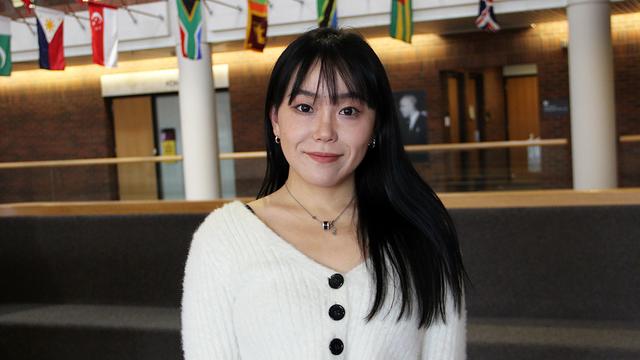By Ann Nordby
What are the licensing requirements for lawyers? For physicians? How do occupational requirements vary from state to state? How do they affect physician shortages, or physician pay? How do they affect patients or clients? Should regulators relax or tighten licensing requirements?
Wenchen Wang, a doctoral student at the Humphrey School of Public Affairs, is posing – and answering – new questions with broad implications.
Originally from China, Wang came to Minnesota for her master's degree in advanced policy analysis. After completing it, she was already working as a high-level data analyst focusing on statewide analytics to facilitate state decision making.
She wanted to do more than crunch numbers. She wanted to delve into even bigger questions, design research programs, and advise policymakers.
PhD will open more doors
"I knew that a PhD would help me consistently have a research focus in my job," she said. "It would make the glass ceiling disappear, give me more choices – in industry as a senior researcher, or as a professor in the academic world."
Although she could have considered universities in any country, she chose the Humphrey School's PhD program for several reasons. "It's a really well-ranked public policy program, plus it offers a really good scholarship compared with other universities," Wang said. "There is a lot of opportunity for research assistantships."
In 2022, Wang was selected for a prestigious fellowship with the U.S. Department of Labor. In that role, she created a framework for compiling information about collective bargaining agreements. Once this database has been completed, it will be a public resource. She has been working on the occupational licensing project throughout her PhD studies, and it's the subject of her dissertation.
Strong student-advisor relationship
In all of her labor economics research, Wang works closely with her advisor, Professor Morris Kleiner. "He is a very influential person in this topic, and he has been super helpful to me from day one. He is constantly helping me to develop my research direction and my dissertation."
This strong student-advisor relationship is typical for the Humphrey School’s PhD program. Cohorts are small, with only a few new students admitted per year. Before being accepted, applicants must clearly state a research interest that aligns with one of the faculty members.
The Humphrey School PhD program provides students with training in research theory, design, statistics, and other quantitative and qualitative methods to support good policies that will benefit everyone. They examine complex data sets from multiple sources using sophisticated research methods to find hidden answers. Cutting-edge research like this is the essence of doctoral-level study.
Humphrey School students work mainly with their advisors, but the cohort forms an important support, too.
"The fellow PhD students are very supportive of each other. They will form the basis of my network," Wang said. In the future, she expects that whether her classmates are working in industry, research centers, or academia, they will be her colleagues.
Wang knows that with her Humphrey School PhD, she is qualified to work at a high level anywhere in the world. Wherever she goes, she said, "I hope to be able to have my own research focus and use my own research process to affect the decision-making process."


